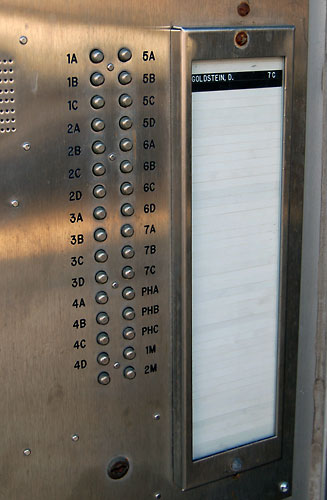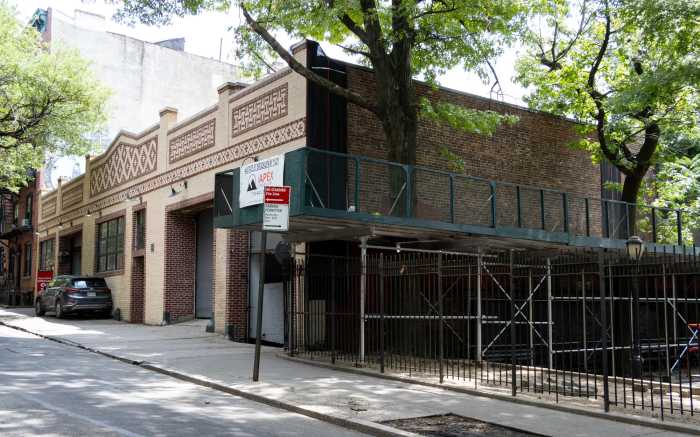State officials have offered an odd excuse for not revealing how they determined the market value of a critical piece of property in the Atlantic Yards footprint: They can’t talk right now because they’re probably going to be sued again.
This week, the Empire State Development Corporation used that argument in denying The Brooklyn Paper’s “Freedom of Information Law” request for details about how the agency determined that Daniel Goldstein’s three-bedroom apartment on Pacific Street is worth $510,000 — $80,000 less than the Atlantic Yards opponent paid for it six years ago.
“Certain responsive materials which were prepared in anticipation of litigation are exempted from disclosure,” the agency said in a formal FOIL rejection letter to The Brooklyn Paper.
The denial came as no surprise to Goldstein (pictured), who is the lone holdout in a Pacific Street building that the state wants to turn over to developer Bruce Ratner so he can construct a basketball arena near the intersection of Flatbush and Atlantic avenues.
“Of course they do not want to show how they came up with that number because it would embarrass them and their appraiser,” Goldstein said. “The number is completely out of whack.”
Real estate agents, as well as lawyers who handle condemnation cases, agreed that the offer was extremely low considering the apartment is in prosperous Prospect Heights. One broker said the unit is worth nearly double what the state offered, and Goldstein’s lawyer Mike Rikon suggested that the ESDC was lowballing his client because of his outspoken opposition to the project.
Goldstein said that ESDC did not make its appraisal documents available to him, either — which condemnation lawyer Bill Ward, who is not involved in this case, saw as an indication that agency has no intention of negotiating with Goldstein to reach a “fair market value and just compensation” — the legal standard in eminent domain cases.
Goldstein’s apartment is central to Ratner’s vision — central in that Goldstein’s building would be near center court of the proposed arena.
That arena took a huge step forward last week when New York’s highest court ruled that the state’s use of eminent domain to hand over privately owned property to Ratner was lawful.
























